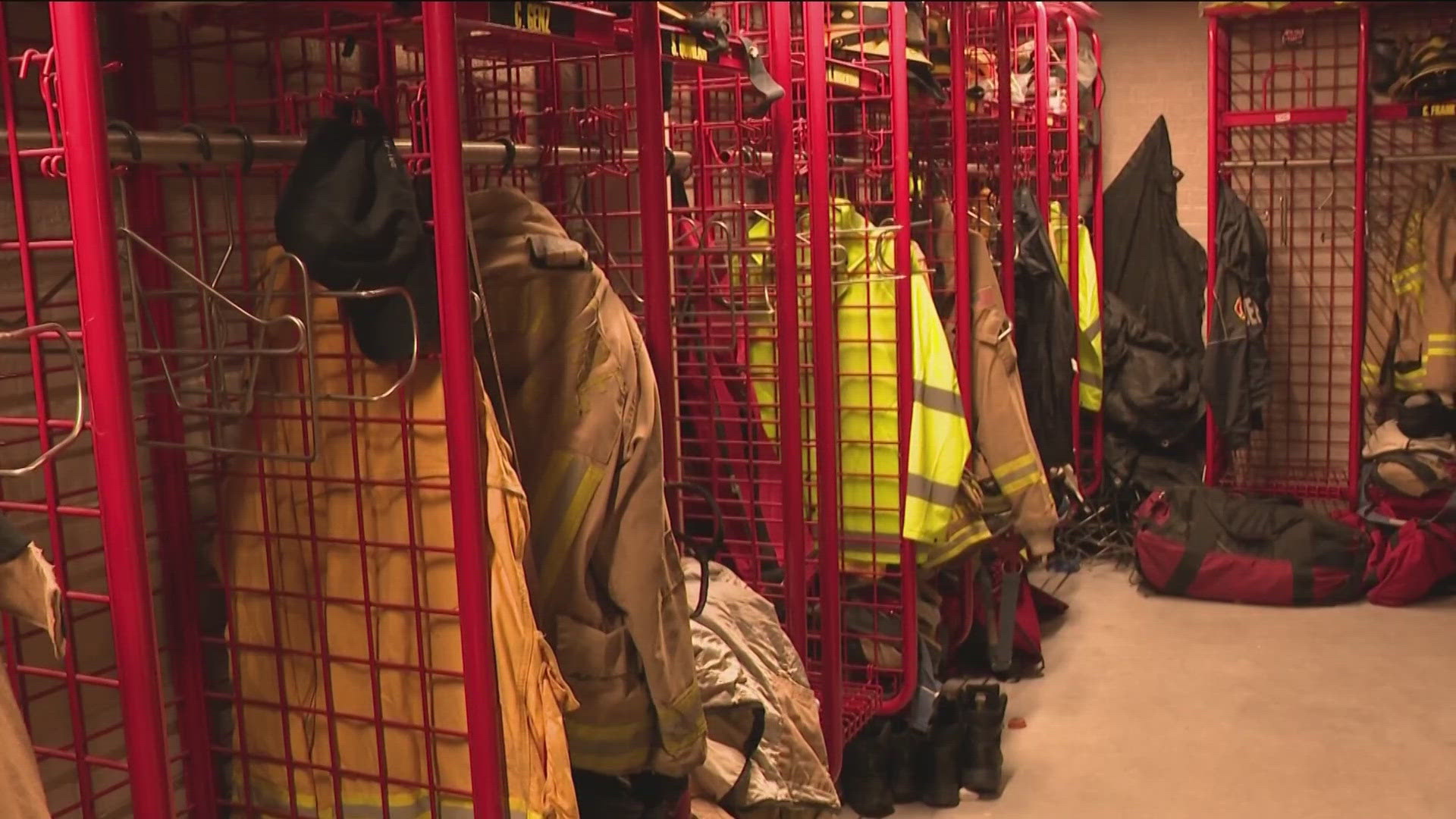AUSTIN, Texas — Austin took steps Thursday to protect first responders by doing away with so-called 'forever chemicals' found in firefighter gear.
City council members unanimously approved eliminating equipment and materials containing polyfluoroalkyl substances, or PFAS.
The plan is to direct the city manager to safely dispose or recycle the materials and find an alternative. Firefighters will also be tested to see the amount of PFAS are in their system.
A spokesperson for the Austin Fire Department said in September, more than 150 firefighters will undergo blood tests for PFAS.
"We want to make sure that we're doing our proper research, which is ongoing right now, identify the different fabrics that are appropriate to take care of them that don't have PFAS," said AFD Chief of Staff Rob Vires.
The clothing made with PFAS is a persistent chemical meant to be long-lasting and unable to break down. Because PFAS are resistant to oil, water, heat, and friction, they help with fighting fires. However, when firefighters sweat in their gear, it absorbs into their bodies, which causes more harm than good.
"One of the problems we have is that often chemicals are introduced for some sort of purpose, and they're not very carefully tested for the potential to accumulate in the human body and make you sick 20 years later with cancer," said Andrea Gore a Professor of Pharmacology and Toxicology at the University of Texas. "It's very hard to test for that."
The levels of PFAS firefighters are exposed to remain unknown, but recent research has been linked to increased health risks, including cancer. According to Gore, PFAS can be found in daily household items such as non-stick materials. The best way to reduce exposure, is to get rid of it.
"I just think that there hasn't been enough attention to it to make people think that we have to do things about it," Gore said. "But in the last few years, there have been a number of studies."
Austin Fire Association President Bob Nicks praised the city's direction to look for alternatives, and explained because of the hazards firefighters already face on the job, striking PFAS out of the equation helps a great deal.
"Firefighters already have a elevated risk of cancer because what we're exposed to on the job and that's that's well quantified," Nicks said. "This is another carcinogen thrown into the mix ... that's why it's got our attention, and I think that's why it's got council attention."

